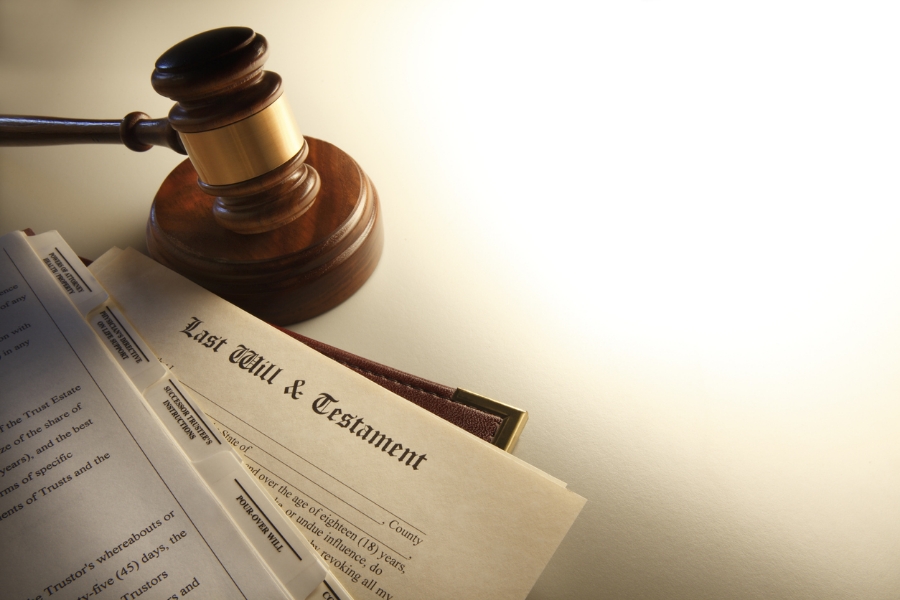
If you are about to make a Will for the first time, you may find that choosing an executor to administer your estate can be one of the most difficult - but possibly the most important - decision you will need to make with regards to your Will and estate planning.
Your executor (also called a "personal representative" or a "trustee") is the person you appoint to carry out the instructions in your Will, to distribute your property according to your directions, and to wrap up your estate after you die. You can name one person to act alone, or several people to act together in this role.
You also have the option to appoint a trust company or your lawyer to act as your executor, if you don't want to place that responsibility on a family member or friend. And make no mistake - it is a lot of responsibility and it's a task that can take years to accomplish.
What does an executor do?
The executor is responsible for dealing with all matters related to distributing and winding up your estate. The duties of an executor include such things as:
- Meeting with the deceased person's family, legal and accounting advisors, business associates, and other interested parties to discuss the provisions of the Will and to make funeral arrangements, if necessary.
- Arranging for probate of the will.
- Notifying banks, brokers, debtors and creditors of the estate.
- Finding and assembling all of the estate assets and property and determining their value.
- Filing life insurance, pension and death benefits claims.
- Reviewing all of the deceased's financial and tax records, including those for any business in which the deceased has a significant interest.
- Reviewing insurance policies, titles, leases, mortgages, and contracts relating to the estate assets or to which the deceased is a party.
- Collecting all income, receivables and debts owing to the deceased or the estate.
- Paying all outstanding debts and liabilities of the deceased or the estate.
- Estimating the amounts required for legacies, taxes, and other costs required to settle the estate and ensuring there are sufficient funds to pay them (including selling estate assets if and when necessary).
- Conducting any legal claims made by the estate and defending any lawsuits against the deceased or the estate, including settling any such claims.
- Preparing the final income tax return.
- Managing trusts for minors (if applicable).
- Distributing the estate assets to the beneficiaries.
Things to consider when deciding who to appoint as your executor
When you name someone close to you to act as the executor of your estate after your death, it's an indication of the high esteem and trust you have for that person. Certainly, you should appoint someone that you trust to manage the estate property and assets until they are all distributed according to your instructions in your Will. But you must also consider the fact that the role of an executor is a demanding, time consuming and often complicated one. It involves dealing with all the legal, fiduciary and tax implications of a death, as well as coping with the financial and emotional needs of the beneficiaries.
Choosing an executor who cannot handle all of these pressures may result in a delay in settling your estate, which in turn can result in higher fees and costs that can eat away at the estate funds. This will leave fewer assets for distribution to your beneficiaries.
Talk to the person about your plans, and find out if they are willing to act in that capacity. It is essential that you have their consent before you name them in your Will.
When choosing someone to act as your executor, consider the following questions:
- Does the person reside in a different province, or even in a different country? If so, the court may require that a bond be posted. If that is the case, the person chosen must be willing and able to post the bond or apply to have it waived.
- Are you setting up a trust for minor children or dependent adults in your Will? Your executor must be willing and able to administer that trust for some time, presumably until the children reach adulthood or the dependent adults pass away. If they cannot commit to that lengthy time frame, consider setting up the trust under a Trust Deed and appointing a trustee who is able to handle the long-term responsibility.
- Will your executor be emotionally capable of carrying out your wishes at the time of your death? This is a very important consideration if you plan to name your spouse, partner or an adult child as your executor, because they will be grieving your loss and assisting other friends or family members in coping with your death. The emotional stress they are experiencing must not detract from their ability to carry out their duties as your executor.
Alternative choices to provide future certainty
It is a good idea to name an alternate executor in case the person you name as your original executor is unwilling or unable to act when the time comes. Another option is to retain a trust company or a lawyer to administer your Will. They will perform all the required duties, including administration of trusts, for a fee.


